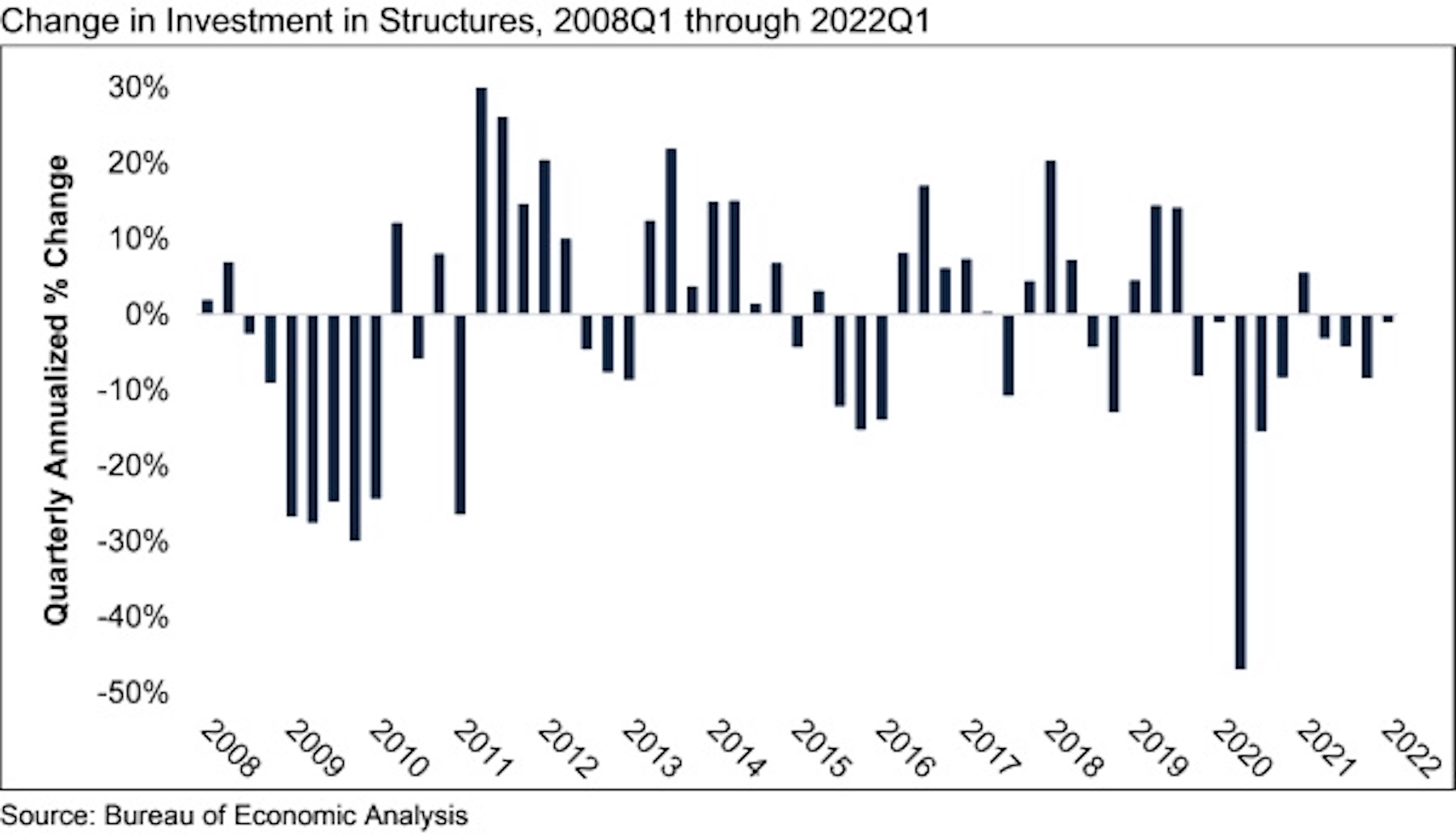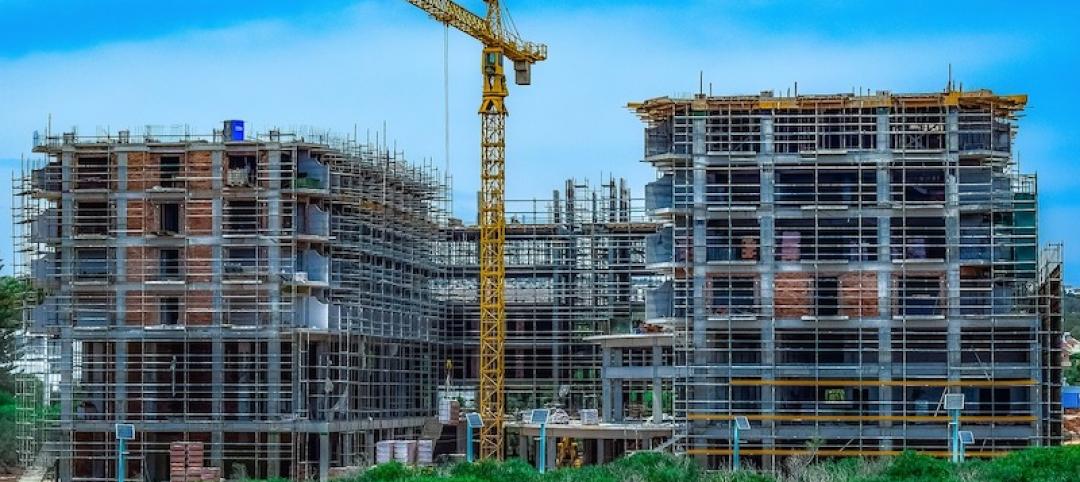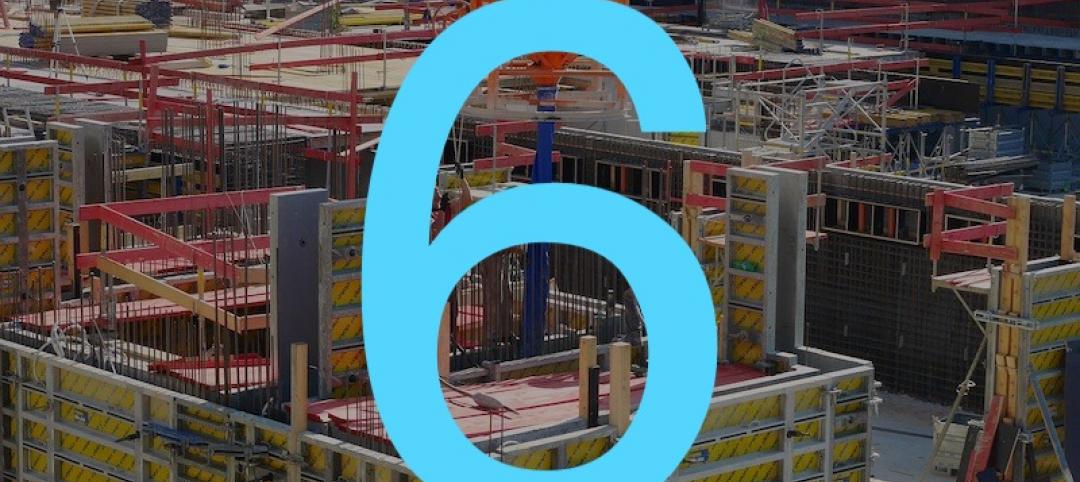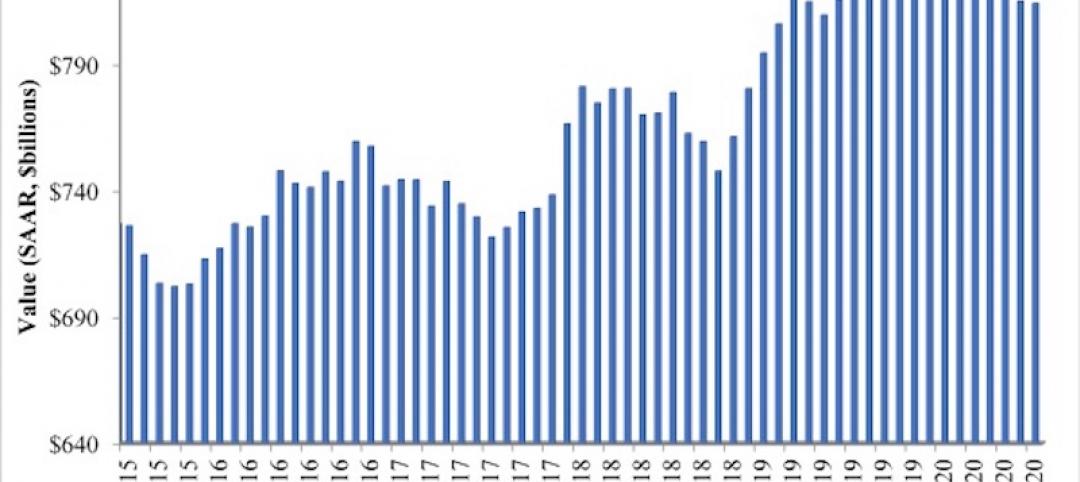The U.S. economy contracted at a 1.4% annualized rate during the first quarter of 2022. Investment in nonresidential structures declined at an annual rate of 0.9% during the quarter and has contracted nine of the past 10 quarters, according to an Associated Builders and Contractors analysis of data released today by the U.S. Bureau of Economic Analysis.
“The economy’s woeful performance during 2022’s first quarter complicates matters,” said ABC Chief Economist Anirban Basu. “Conventional wisdom says the economy has enough momentum to contend with the tighter monetary policy the Federal Reserve is pursuing to countervail inflation. Today’s data indicate that the economy is weaker than thought, which means the Federal Reserve will have a very difficult time curbing inflation without driving the economy into recession in late 2022 or 2023.
“That said, the economy should manage to generate some positive momentum during the next two to three quarters,” said Basu. “Consumer demand for goods and services remains strong. The omicron variant affected the economy during the first quarter and that does not appear to be the case during the second. Global supply chains have been adjusting to the dislocations caused by the Russian-Ukraine war. Many state and local governments are flush with cash and continue to plan for a period of elevated infrastructure outlays.
“There is one other bit of good news,” said Basu. “The weakness exhibited by the economy during the first quarter may persuade monetary policymakers to raise interest rates less aggressively. This is a matter of significance for nonresidential contractors, who have become less confident in recent months, according to ABC’s Construction Confidence Indicator. Investment in structures continues to decline in America, in part due to weakness in office, lodging and shopping mall segments. Presumably, additional rapid increases in borrowing costs would further dampen new construction in these categories. It may be that the Federal Reserve will raise interest rates more gradually than they would have knowing that the U.S. economy is already rather fragile.”


Related Stories
Market Data | Oct 15, 2020
6 must reads for the AEC industry today: October 15, 2020
Chicago's Bank of America Tower opens and altering facilities for a post-COVID-19 world.
Market Data | Oct 14, 2020
6 must reads for the AEC industry today: October 14, 2020
Thailand's new Elephant Museum and the Art Gallery of New South Wales receives an expansion.
Market Data | Oct 13, 2020
5 must reads for the AEC industry today: October 13, 2020
Miami Beach Convention Center renovation completes and guidance offered for K-12 schools to support students with asthma.
Market Data | Oct 12, 2020
Majority of contractors fear long-term business implications of COVID-19, according to Construction Executive survey
While many contractors have not yet seen drastic impacts to their business, as construction was in many areas considered an “essential” service, the long-term implications are concerning.
Market Data | Oct 12, 2020
6 must reads for the AEC industry today: October 12, 2020
4 challenges of realizing BIM's value for an owner and Florida office property is designed for a post-Covid world.
Market Data | Oct 8, 2020
6 must reads for the AEC industry today: October 8, 2020
The first rendering of the National Medal of Honor Museum is unveiled and seven urgent changes needed to fix senior living.
Market Data | Oct 7, 2020
6 must reads for the AEC industry today: October 7, 2020
Water-filled windows' effect on energy and construction begins on PGA of America HQ.
Market Data | Oct 6, 2020
Construction sector adds 26,000 workers in September but nonresidential jobs stall
Many commercial firms experience project cancellations.
Market Data | Oct 6, 2020
6 must reads for the AEC industry today: October 6, 2020
Construction rises 1.4% in August while nonresidential construction spending falls slightly.
Market Data | Oct 5, 2020
Nonresidential construction spending falls slightly in August
Of the 16 nonresidential subcategories, nine were down on a monthly basis.

















